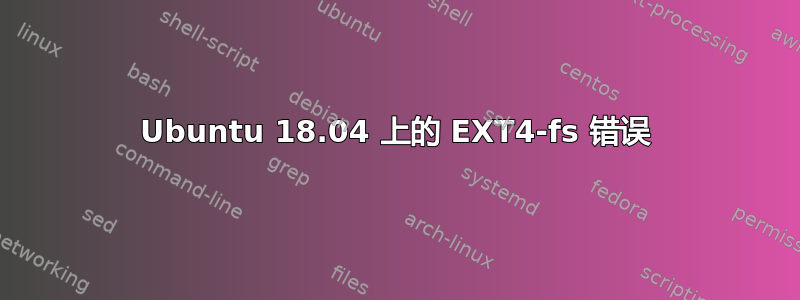
我知道这个问题看起来与此链接中的问题类似Ubuntu 17.04 升级后出现 EXT4-fs 错误但是,我的情况有所不同,因为我没有使用三星 NVMe SSD,因此更改启动参数的解决方法以及错误报告对我没有帮助。问题是,我得到的错误与另一个问题中的用户得到的错误相同。
虽然我的情况是随机发生的,但有时当我启动系统时,我无法打开任何应用程序,因为它们会立即关闭,而当我尝试关机或重新启动时,它会卡住并显示黑屏,并出现类似这样的错误ext-fs error device sda 7 ext4_find_entry comm gdm3: reading directory iblock 0,随后出现几个错误/dev/sda7: Clearing orphaned inode 6946818 (uid=122, gid=127, mode=0100600, size=0)。
然后它显示它正在启动几个进程,显示之后[ OK ] Started MySQL Community Server.,它显示另一个错误[ 642.321539] systemd-journald[314]: Failed to write entry (24 items, 610 bytes), ignoring: Read-only file system...,并一直显示更多类似的错误。
即使我强制重启,同样的事情也总是会第二次发生,然后在第三次时又会恢复正常。就像我之前说的,这完全是随机的,有些日子我没有发生这种情况,而有些日子却经常发生。我正在双启动 Windows 10,并且运行良好。我使用的是 HP 250 G5 笔记本电脑,Ubuntu 18.04。硬盘型号为 ST500LM000-1EJ162 (DEM7)。
答案1
让我们检查您的文件系统是否有错误。
对于 18.04 或更新版本...
- 以“试用 Ubuntu”模式启动 Ubuntu Live DVD/USB
terminal按Ctrl+ Alt+打开窗口T- 类型
sudo fdisk -l - 识别“Linux 文件系统”的 /dev/sdXX 设备名称
- 输入
sudo fsck -f /dev/sdXX,替换sdXX为您之前找到的数字sudo fsck -f /dev/sda7
fsck如果有错误则重复命令- 类型
reboot
笔记:如果您继续遇到问题,我们将使用我稍后添加的程序对您的磁盘进行坏块处理。
更新 #1
注意:不要中止坏块扫描!
注意:不要对 SSD 造成坏块
注意:请先备份您的重要文件!
注意:这将花费很多小时
注意:您可能面临硬盘故障
在“尝试 Ubuntu”模式下启动 Ubuntu Live DVD/USB。
在terminal...
sudo fdisk -l# 识别所有“Linux 文件系统”分区
sudo e2fsck -fcky /dev/sdXX# 只读测试
或者
sudo e2fsck -fccky /dev/sdXX# 非破坏性读写测试(受到推崇的)
-k 很重要,因为它会保存之前的坏块表,并将任何新的坏块添加到该表中。如果没有 -k,您将丢失所有之前的坏块信息。
-fccky 参数...
-f Force checking even if the file system seems clean.
-c This option causes e2fsck to use badblocks(8) program to do
a read-only scan of the device in order to find any bad blocks.
If any bad blocks are found, they are added to the bad block
inode to prevent them from being allocated to a file or direc‐
tory. If this option is specified twice, then the bad block scan
will be done using a non-destructive read-write test.
-k When combined with the -c option, any existing bad blocks in the
bad blocks list are preserved, and any new bad blocks found by
running badblocks(8) will be added to the existing bad blocks
list.
-y Assume an answer of `yes' to all questions; allows e2fsck to be
used non-interactively. This option may not be specified at the
same time as the -n or -p options.



